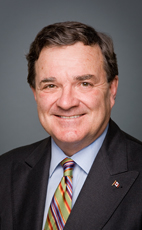Mr. Speaker, as I have already indicated to the House today, leading independent private assessors, forecasters and analysts have looked at this, including the University of Toronto, the Conference Board of Canada, the Federation of Canadian Municipalities, the National Bank Financial Group.
They all came to the conclusion that we have created or maintained about 220,000 jobs as a result, strictly, of the economic action plan. Of course, we have had economic growth as well in the past five quarters, resulting in nearly 430,000 total net new jobs in Canada since the end of the recession.

